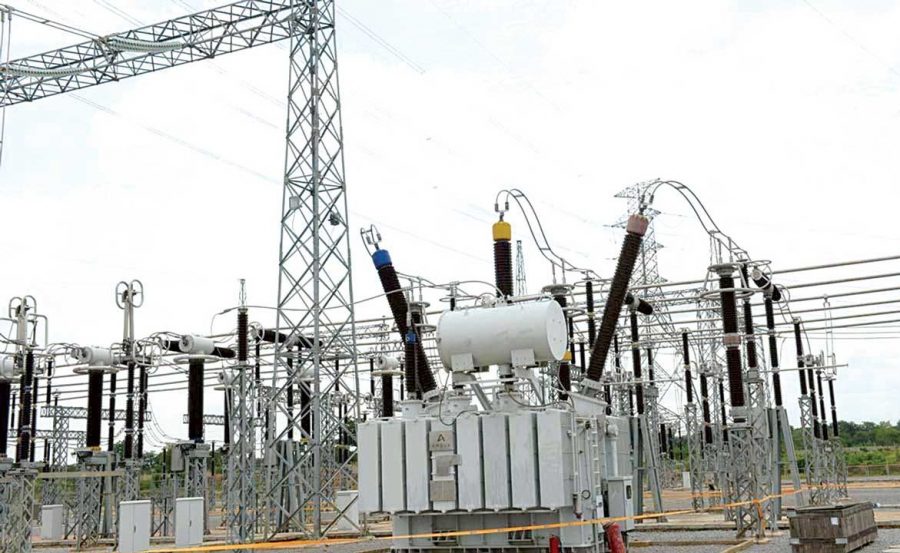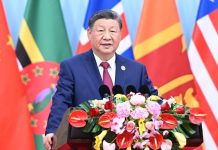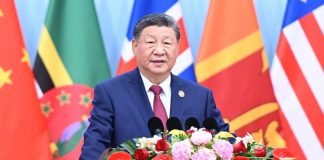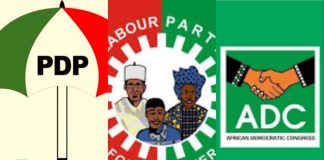🌿 Ruzu Non-Alcoholic Herbal Bitters
Ruzu Non-Alcoholic Herbal Bitters is a natural health supplement specially formulated to:
- ✅ Promote general wellness
- ✅ Detoxify the body
- ✅ Support the treatment of various ailments
Made from a powerful blend of 100% organic and medicinal herbs, Ruzu is completely alcohol-free, making it ideal for:
- 👪 All age groups
- 🌱 Health-conscious individuals
- 🌿 Anyone seeking non-alcoholic herbal remedies
Whether you're looking to boost your vitality, cleanse your system, or support healing the natural way, Ruzu Bitters offers a trusted herbal solution.
NERC ready to partner with states and stakeholders to ensure steady power supply
By Admin
Dafe Akpeneye, the Legal, Licensing and Compliance Commissioner at the Nigerian Electricity Regulatory Commission (NERC) has said that the Commission has always been ready to partner with any state or anyone who can keep the lights on.
He stated this on Wednesday, July 12 during the NERC Stakeholder Workshop currently ongoing in Lagos state.
According to Mr. Akpeneye, Nigeria is yet to meet adequate supply. He said:
“There is a cost to electricity, and we haven’t yet made the commensurate investment in the sector to give us adequate supply. NERC’s principle has always been that we will partner with any State or anybody that achieves the common goal of ensuring that the lights stay on.
The 2023 Electricity Act empowers NERC to have a continuing responsibility to monitor the Nigerian Electricity Supply Industry (NESI) regarding its potential for additional competition.
According to the Act, NERC must ensure the prevention or mitigation of abuses of market power which includes market concentration.
Also, NERC will determine the tariff prices. It is important to note that NERC must allow licensees that operate efficiently to recover the full costs of the business activities, including a reasonable return on the capital invested in the business.
Also, Musiliu Oseni, the Vice Chairman/Commissioner of Market, Competition and Rates said that only 53% of available electricity capacity is utilized in the country due to challenges with gas supply, transmission and distribution constraints and commercial challenges.
Earlier reports states that any failure to review electricity tariffs means that generating companies (GenCos) will not be able to meet their obligations to gas suppliers, which could lead to a lower amount of gas availability for electricity generation to meet the demands of the consumers.
Currently, gas suppliers are faced with millions of dollars in unpaid gas bills amounting to over $1 billion. However, based on agreed gas supply contracts, the inability to increase tariffs by distribution companies (DisCos) could lead to further accumulation of debts beyond the current level of indebtedness experienced.
Mr. Oseni also outlined how states should approach the implementation of the Act.
Read Also:NCAA Suspends Max Air Domestic Flights Indefinitely
According to him, states face important choices that come with implications when implementing the Act, so it is important for them to adopt the following approaches to foster growth in the NESI:
Adopt a collaborative mindset
Focus on load growth
Prioritize quality improvements
Prioritize customer satisfaction
Work towards improving liquidity
Also, Dolapo Kukoyi, Managing Partner at Detail Commercial Solicitors said that the successful implementation of the Act will require cohesion and collaboration. She said:
“Asset transfers will be a critical issue to address, with precedents being set in the process. Stakeholders must be prepared for this, and states should exercise caution before taking any major steps.
“Financial capabilities are also important, as there will be direct accountability to constituents.
“Overall, successful implementation of the Electricity Act will depend heavily on effective collaboration and careful planning.”
Source: Nairametrics
















